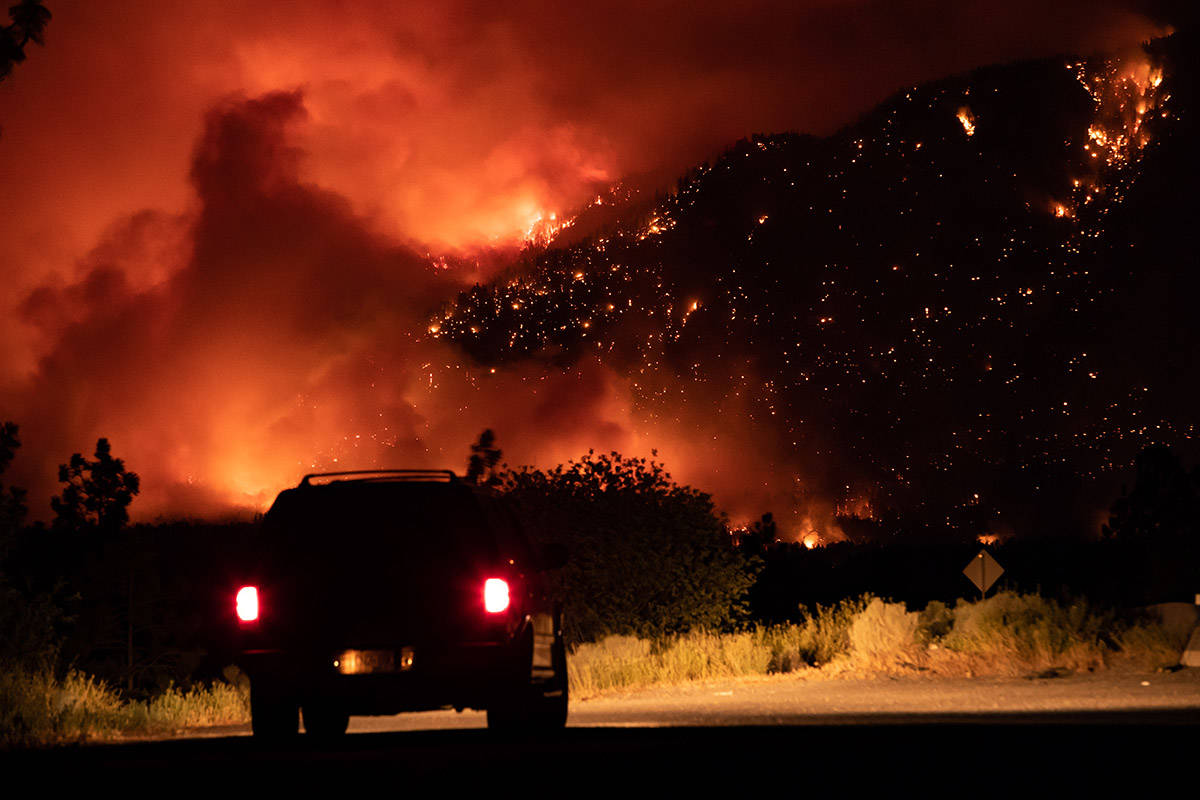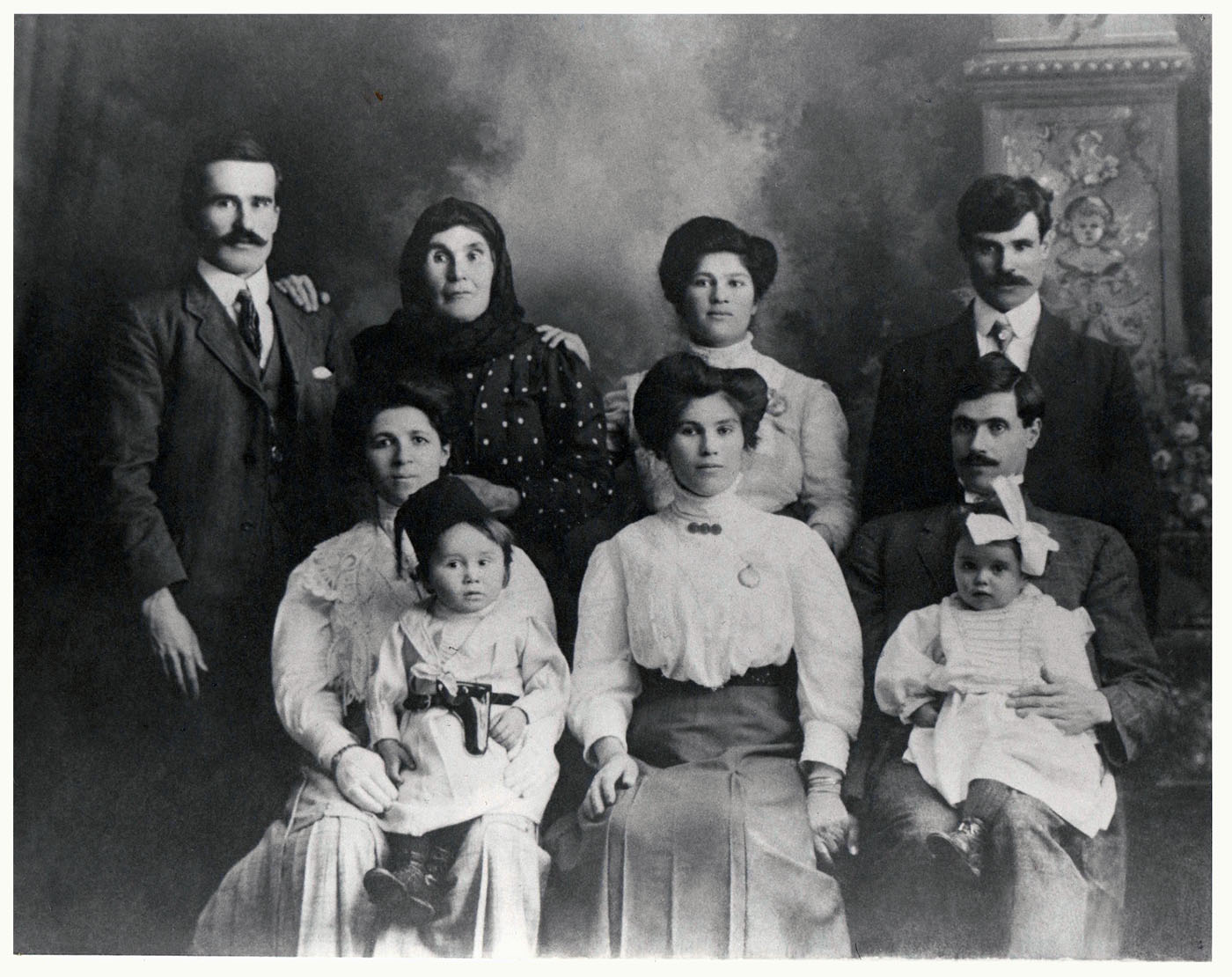
Hadani Ditmars
It is hot, like most mornings this month, as I awaken to the smell of burning forests.
I look out my window at the freighters in the harbor, and head to the sea to escape the heat and acrid air. On the rocky Pacific beach where I’ve swum since childhood, I meet an old man, ocean bathing with his friends. His face looks kind and somehow familiar as he smiles at me.
“Hello,” he says and I return the greeting. We introduce ourselves. His name is Yusuf, and he is from Istanbul. He comes here daily, he says, just like he used to swim “at home in the Bosporus.” He came here in the ‘60s, he tells me, to work in the cherry orchards of the Okanagan, in the arid interior of my province with rolling ochre hills, currently plagued by wildfires, that looks just like parts of Turkey and Syria. He stayed, and never went back. Now he is one of over 100,000 Turks living in Canada, and almost 10,000 in British Columbia, with most living near Vancouver, where Turkish Airlines has just started direct flights to Istanbul. Now both of our nations are burning, with forest fires devouring land, homes, and memories.
“Your face,” he smiles, gesturing with his wizened hands at the cheekbones and olive skin I inherited from my Syrian Christian ancestors who fled Ottoman rule in what is now Lebanon for safer shores, settling in Canada in 1906. “Where are you from?”
He asks in a friendly way, as if we could be kin, not in the way pale strangers ask me at bus stops on cold winter mornings, unsmiling, or the way border guards question me almost everywhere. He asks because even though, according to the DNA police at 23 and Me, I am only “30% Levantine” and “40% Anglo-Irish,” it’s the Middle Eastern genes that have triumphed. Although, I muse as I sink into the bracing Pacific salt water, perhaps it’s those other ancestors that make me have a low tolerance for heat and the ability to swim in cold water for hours.
So, I tell him the story, there in the sea. The one about the ancestors making their way from their village of Qaraoun, with rolling ochre hills and cherry orchards and Ottoman police, to Port Said in Egypt; the one about the women and children being on the freighter to America already, and the young men rowing out under the cover of darkness, and only one of them making it to the top of the rope ladder, before the Turkish gunboat came by. I tell the tale of the shipping strike in Marseilles and the three months they were stranded there, taking time for a pilgrimage to Lourdes before heading out to sea again and landing on Ellis Island, where their Turkish passport was stamped “Asiatic.” A few years later, as relations soured between the British and Ottoman empires, anti-Asian exclusion laws would have prevented them from entering North America.

I show Yusuf on my phone the family photo from 1906 in Winnipeg, where my great grandparents, young newlyweds, hold hands, and their first-born son George, wears a toddler’s fez and holds a toy gun. I recount how they eventually arrived in a Northwest Coast Canadian fishing village called Prince Rupert. I tell Yusuf about the store they opened and their kindness to the First Nations people, at a time when apartheid-like conditions reigned, with “whites only” signs hanging outside of shops and movie theatres, and how they were adopted by a Haida Indian chief.
I tell him all this quickly, easily, the story spilling out as Yusuf and his friends listen intently, exchanging glances and words in their native language, before Yusuf says, “Nice story. You have Turkish face.” His friends all agree. I remember an old boyfriend, now lost in some other sea, some other life, who once visited Istanbul with another woman, but brought me back gifts: a copper bowl and a white linen cloth from a hammam that I still treasure. He couldn’t help it, he said. “Your face was everywhere.”
I return from my revery to these home shores as Yusuf tells me to be “safe out there in the sea,” from whatever hidden dangers might lurk beneath its gleaming green surface.
I bid Yusuf goodbye, and put my phone in a special sealed container, rolled up into my “swim buddy,” the inflatable buoy attached to my waist meant to shield me from aquatic harm, and dive in.
As I swim a few hundred meters from freighters in the Pacific harbor town of my birth, I think of that night in Port Said and how a few seconds timing can mean the difference between drowning or surfacing; on how the whims of border guards can dictate being allowed entry or turned back to sea; on how a few minutes and a strong wind can blow your whole life off course or engulf your village in flames.
I remember the TV newscast from last night, with images of a man in a Turkish village weeping for his lost land and animals, while he clutched a baby goat he found wandering in the ashes, named “Miracle.” They fuse with other images of Canadian farmers fleeing prairies, whole towns in British Columbia destroyed in a single day, stories of evacuations by sea for tourists in Oren and another boatload of migrants drowned in the Mediterranean Sea. How quickly home can become a dangerous place one must flee.
I raise my arm for another stroke, dipping down into the cold Pacific waters, gasping slightly for oxygen in the smoky air, and remember the ancestral journey. There were fires then too, of a different kind. Empires crumbling, wars looming, smoke, and murder in the air. And still today, families are fleeing that heated place. I write this, a year after the terrible explosion in the port of Beirut killed hundreds and wounded thousands, exacerbating the ongoing economic and political crises in my grandparents’ homeland. Now there is another conflict at the Israeli border and IDF planes are carrying out airstrikes in Southern Lebanon, not far from my ancestral village and the Litani River.
A hundred Israeli strikes have triggered multiple brush fires in tinder-dry conditions.
I think of my great-grandfather’s passport, labelled “Asiatic” upon arrival. I wonder what became of it, that old worn travel document with an Ottoman stamp. By chance, just at the same time as I began to write for TRT, exchanging midnight emails with editors in another time zone, ten hours ahead of Pacific time, I met a neighbor across the street who was also from Istanbul. Trapped together in yet another Covid lockdown, we met outside his garden while I was hill-walking — a good neighborhood pandemic gym substitute. “If you find that document,” he told me, after I’d recounted my ancestral story, “you can apply for Turkish citizenship.”
I briefly fantasized about retiring to a beach house in southern Turkey, in a place that is now engulfed in flames. My neighbor and I still chat every week, but now, as Anatolian orchards burn, the pavement outside his house is full of squashed cherries from his tree. He had to let most of them go to waste, he says, because the cost of getting someone to come and pick them is too high. “In Turkey,” he sighs longingly, “ it could be arranged easily in an afternoon.”
I turn and swim back to shore with images of burning trees in my head, and a strange craving for cherries.
Miraculously, I meet a group of young Turkish friends, having a picnic on the grassy banks. I emerge from the water like a strange sea creature, but they say hello and take me in, inviting me to feast on kebabs and salads that remind me of my grandmother’s kitchen. There is a huge bowl of cherries too, and I remember the crushed cherry pits needed for my grandmother’s recipes that I searched for in vain in new world supermarkets. The annual Vancouver Turkish Festival has been cancelled again due to the pandemic, but this seems like a good substitute. Amazingly, we learn that we have been neighbors for years.
I think of my great-grandparents who left their village and never returned, deciding perhaps in a few minutes, that it was too dangerous to stay. I think of everyone who has lost their land, had their village bombed or burned down, escaped to sea. There is still smoke in the air, and the fires still rage. But for now, this food, this ancestral feast, tastes like home.



